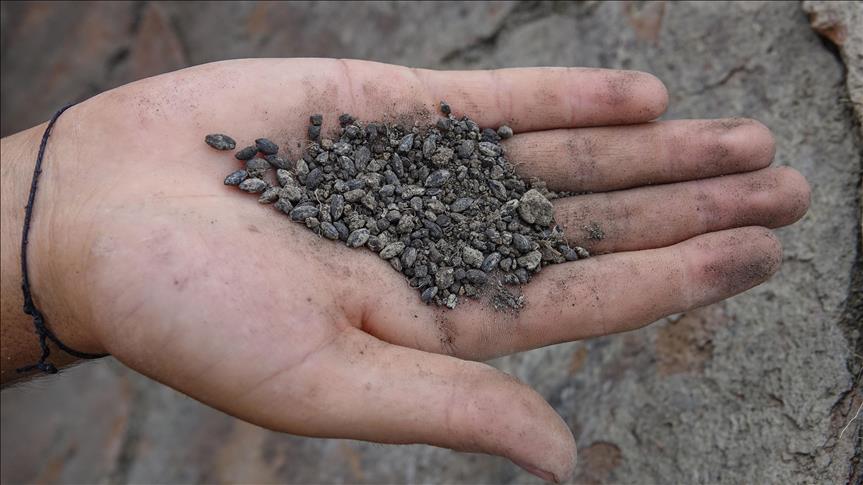2,800-year-old seeds found in Turkey to be resurrected
Ancient wheat and sesame seeds found during excavations in ancient castle in eastern Van province

By Mesut Varol
VAN, Turkey
2,800-year-old wheat and sesame seeds taken from an excavation in an ancient castle in Turkey's eastern Van province are to be brought back to life.
Some ancient wheat and sesame seeds were found during the excavations, started in the Cavustepe Castle in 2014 and headed by Van Yuzuncu Yil University archaeology department professor Rafet Cavusoglu.
Cavustepe Castle, built in the 8th century B.C. by Urartian King Sarduri II and has survived along with cisterns, city walls, temples and palace structures, is located in the Gulpinar district, 25 kilometers (15.5 miles) away from the city center.
"Three cereal storages were found during the excavations in the castle," Cavusoglu told Anadolu Agency. "The castle is on the trade route through northwestern Iran, thus the findings may reveal some important information about the trade at that time."
The seeds, confirmed to be 2,800 years old, will now be regenerated in a laboratory environment.
Cavusoglu said the cereals cultivated from Gurpinar used to be preserved in these storages in the castle.
"The ceramic containers in which the cereals were stored are called 'pithos'. Most of the harvests used to be kept in these containers," Cavusogle informed.
"We packed the wheat and sesame in due care. We will analyze these seeds in laboratories. If the seed had become carbonized by itself, the possibility to regenerate it is quite high. However, if it is because of a fire, we have less chance to revive them."
Anadolu Agency website contains only a portion of the news stories offered to subscribers in the AA News Broadcasting System (HAS), and in summarized form. Please contact us for subscription options.

